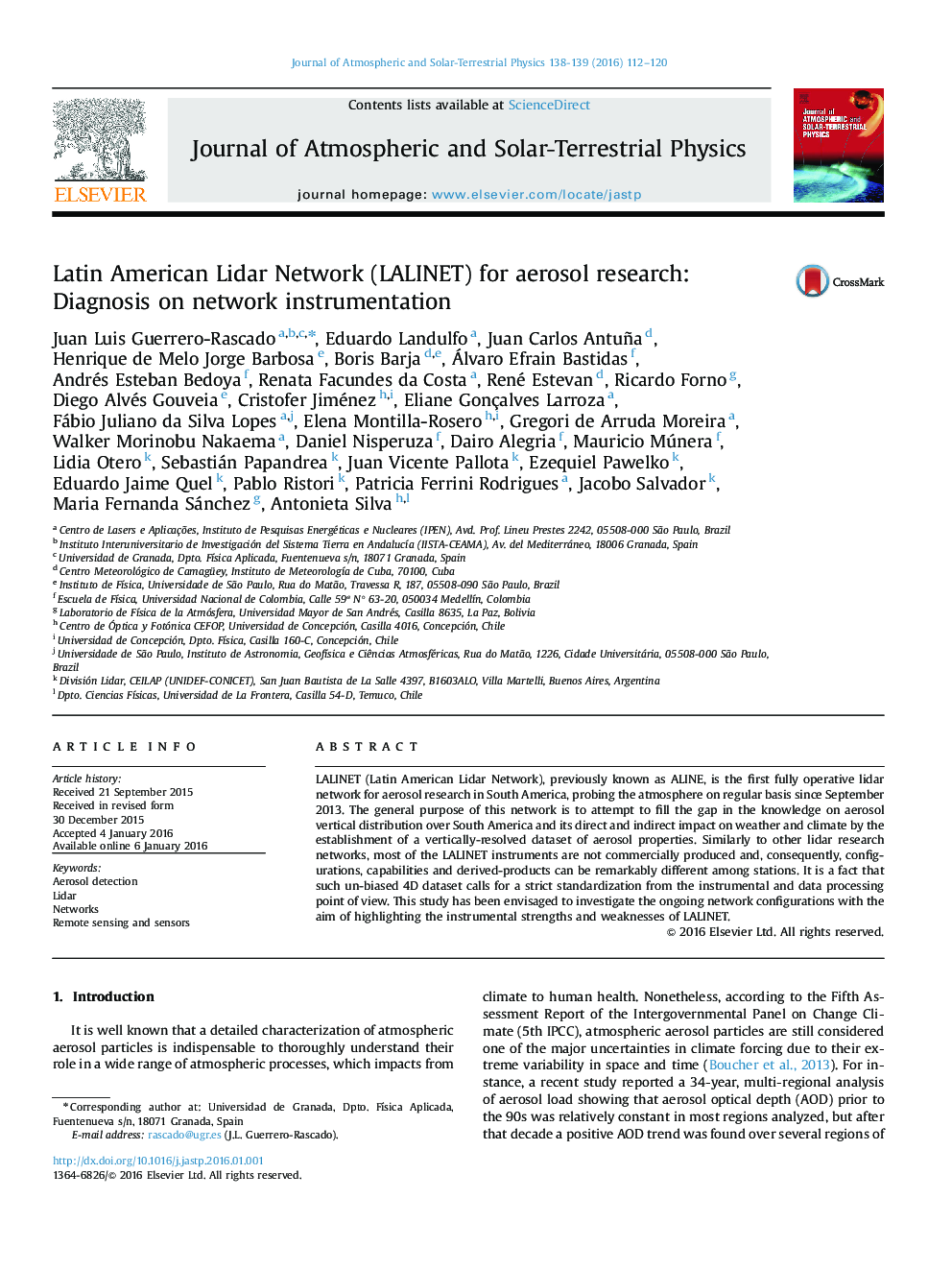| Article ID | Journal | Published Year | Pages | File Type |
|---|---|---|---|---|
| 1776314 | Journal of Atmospheric and Solar-Terrestrial Physics | 2016 | 9 Pages |
Abstract
LALINET (Latin American Lidar Network), previously known as ALINE, is the first fully operative lidar network for aerosol research in South America, probing the atmosphere on regular basis since September 2013. The general purpose of this network is to attempt to fill the gap in the knowledge on aerosol vertical distribution over South America and its direct and indirect impact on weather and climate by the establishment of a vertically-resolved dataset of aerosol properties. Similarly to other lidar research networks, most of the LALINET instruments are not commercially produced and, consequently, configurations, capabilities and derived-products can be remarkably different among stations. It is a fact that such un-biased 4D dataset calls for a strict standardization from the instrumental and data processing point of view. This study has been envisaged to investigate the ongoing network configurations with the aim of highlighting the instrumental strengths and weaknesses of LALINET.
Related Topics
Physical Sciences and Engineering
Earth and Planetary Sciences
Geophysics
Authors
Juan Luis Guerrero-Rascado, Eduardo Landulfo, Juan Carlos Antuña, Henrique de Melo Jorge Barbosa, Boris Barja, Álvaro Efrain Bastidas, Andrés Esteban Bedoya, Renata Facundes da Costa, René Estevan, Ricardo Forno, Diego Alvés Gouveia,
